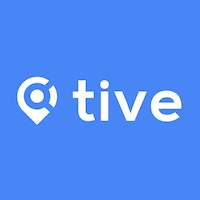Supply Chain Brain Video Interview: How 'Visible' Is the Supply Chain Today?

November 5, 2019
March 24, 2025
x min read

Tive CEO, Krenar Komoni, recently sat down with Supply Chain Brain editor Bob Bowman to discuss how supply chain visibility has changed over the years and where it is headed.
Watch the video: How 'Visible' Is the Supply Chain Today? (Supply Chain Brain). YouTube Link Here
Two of the biggest revelations that Komoni shares in this interview may surprise you:
- World’s largest companies only know where 30% of their shipments are; meaning 70% are out of contact at any given time. Komoni explains that there are two reasons for this lack of supply chain visibility compliance:
- Carrier Fragmentation – With half a million U.S. carriers, it’s a challenge to onboard all these companies with the latest visibility solutions.
- Lack of Incentives – Carriers have no motivation to install more apps on their phones and share shipment visibility with their customers. While larger carriers may be doing best on this front, 3PLs are constrained by the fact that they have to subcontract loads regardless of the size of the carrier.
- Evolving customer need for more visibility
Supply chain visibility has evolved over time. 30 years ago, we knew when the shipment left the dock and when it arrived at its destination. Next generation of visibility enabled customers to know where the assets that are moving their goods – trucks, planes or ships – were. Now, the third-generation of visibility with real-time tracking solutions, like Tive’s, are allowing shippers and their customers to track the loads themselves, to get inside the trailers and monitor the quality of the shipment throughout its journey.
“Shippers can skip the telematics solutions, the smartphone apps, and can put sensors on the goods and get information directly from their loads,” says Komoni.

